 Petzlover
Petzlover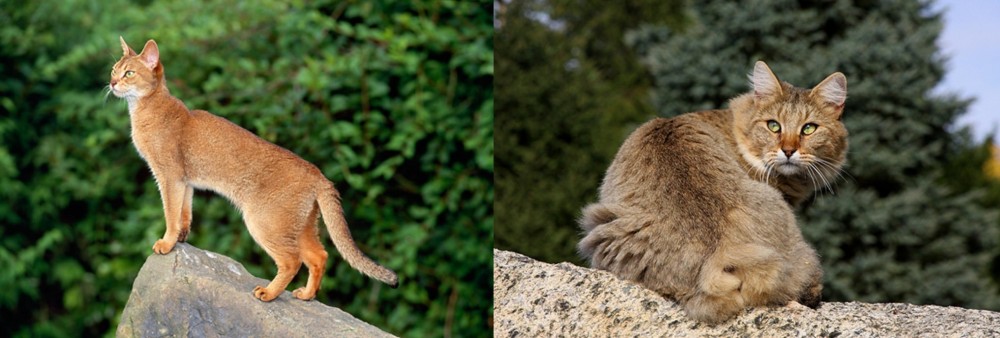 Abyssinian is originated from Ethiopia but Jungle-Bob is originated from United States. Both Abyssinian and Jungle-Bob are having almost same weight. Abyssinian may live 3 years more than Jungle-Bob. Both Abyssinian and Jungle-Bob has same litter size. Abyssinian requires Low Maintenance. But Jungle-Bob requires Moderate Maintenance
Abyssinian is originated from Ethiopia but Jungle-Bob is originated from United States. Both Abyssinian and Jungle-Bob are having almost same weight. Abyssinian may live 3 years more than Jungle-Bob. Both Abyssinian and Jungle-Bob has same litter size. Abyssinian requires Low Maintenance. But Jungle-Bob requires Moderate Maintenance
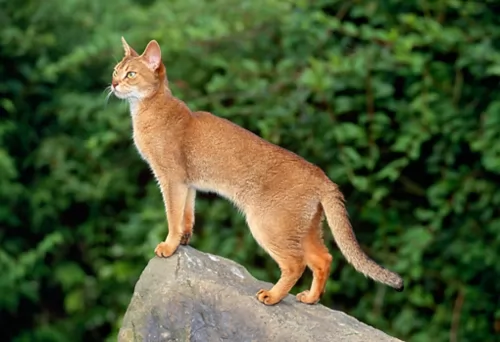 Known also as the Bunny Cat or the Abys, the Abyssinian cat hails from Abyssinia which is today known as Ethiopia.
Known also as the Bunny Cat or the Abys, the Abyssinian cat hails from Abyssinia which is today known as Ethiopia.
It is believed that the cat was brought to the UK in the 1860s. At first the cat was crossed with British Shorthairs, and later with oriental breeds.
The cat was imported in 1900 to America with some breeding programs starting in the United States in the 1930s. It is thought that it was a good thing that cats were exported to the U.S. because World War II took a toll on breed numbers but the breed was built up again in the USA.
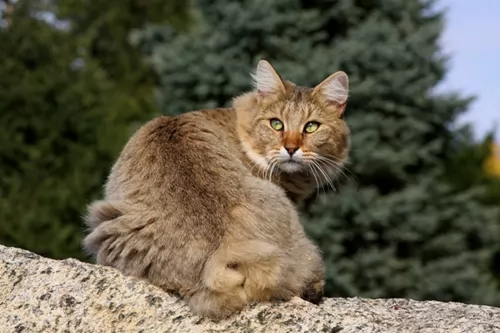 What is notable about this cat is that it can have a Bobcat like tail or it can have a full-length tail. They’re a fairly new breed and have been bred since the early 1990s. The whole purpose of breeding the cat was to develop a jungle cat hybrid with a spotted pattern.
What is notable about this cat is that it can have a Bobcat like tail or it can have a full-length tail. They’re a fairly new breed and have been bred since the early 1990s. The whole purpose of breeding the cat was to develop a jungle cat hybrid with a spotted pattern.
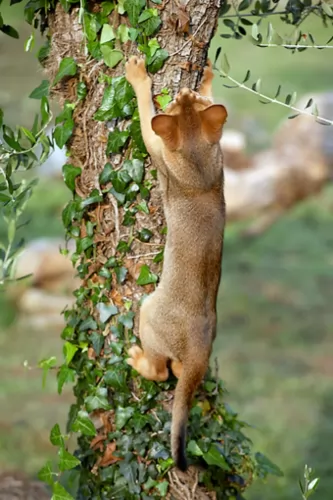 The Abyssinian is a slender, lithe, fine-boned, medium sized cat with shortish to medium length silky hair and long, slender legs.
The Abyssinian is a slender, lithe, fine-boned, medium sized cat with shortish to medium length silky hair and long, slender legs.
The fur has a distinctive ticked look. The coat comes in several colors – but its base color is a glossy reddish-brown base with black ticking.
You’ll find that the feline reaches a height of 20-25 cm and that its length is roughly 30-41 cm. When your Abyssinian is an adult it will weigh about 4-5 kg. With good care, your feline pet can reach up to 13 years of age.
The kittens are born with dark coats, but as they mature, the coat lightens. The head of the cat is somewhat wedge-shaped and it has fairly large ears with big almond-shaped eyes. The eyes can be green or hazel, depending on the coat shade. The tail is long and tapering.
The Abyssinian loves leaping onto cupboard tops or anything that has some height. It's an intelligent cat this Aby and always on the go. He is a playful cat and just loves being the center of attention, and when he has lots of toys he is always occupied, entertaining you with his antics.
If you were to be away at work every day, it would be a good idea to have a friend for him because he’s the kind of cat that becomes bored and lonely and then he becomes naughty. This cat is known as a clown with its outgoing, mischievous nature.
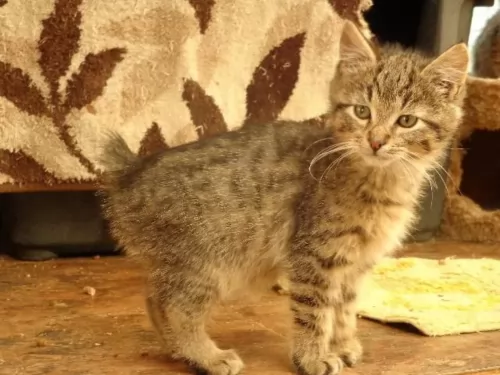 These are big cats and can weigh between 6 and 10kg. The leopard-spotted coat comes in all shades – brown, tawny, gold, silver and black with you not likely to see solid shades.
These are big cats and can weigh between 6 and 10kg. The leopard-spotted coat comes in all shades – brown, tawny, gold, silver and black with you not likely to see solid shades.
The coat can be short or medium-length. The cats have a thick muzzle and he has hooded eyes. The ears are fairly large and placed high o the head. They’re well muscled with long legs with the hind legs being fairly longer than the front legs
The Jungle-Bob loves his food. He loves interactive toys that hold the food and encourage him to think about how to get the food out.
He loves his human family and bonds strongly with them, loving to play rough and tumble games with the kids. He gets on well with children as well as other pets in the house.
You may find your Jungle-Bob being shy and not wanting to be friendly with strangers. They’re intelligent cats and have been known to learn how to open certain doors and cupboards. They can also be taught to walk on a leash.
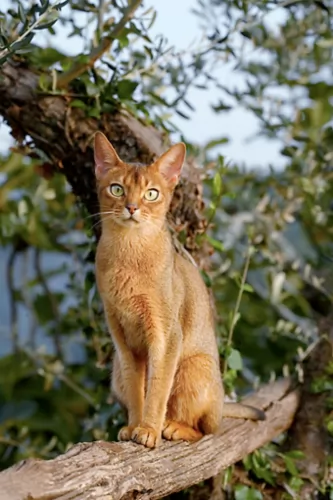 Your active Abyssinian cat is such a pleasure to have in the home as these cats love their human family as well as other pets in the home.
Your active Abyssinian cat is such a pleasure to have in the home as these cats love their human family as well as other pets in the home.
He’ll talk to you in a quiet way. They’re playful cats and you want to make sure you supply him with some stimulating toys.
Remember to brush his coat gently and make it a special therapeutic, bonding time. Make sure your active cat has exercise and provide some climbing equipment for him. Most of all he just wants to be around you and to get your loving attention.
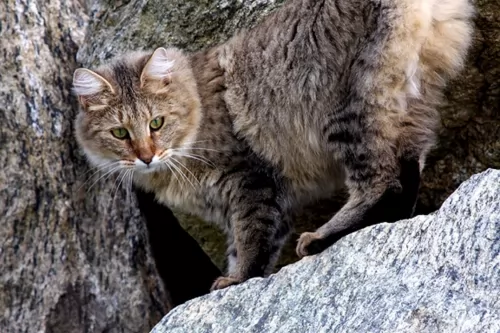 Your Jungle-Bob, just like all cats with a wild side, should have a largish outdoor cage. Keeping a hybrid cat like the Jungle-Bob is far more challenging than keeping a regular domesticated cat.
Your Jungle-Bob, just like all cats with a wild side, should have a largish outdoor cage. Keeping a hybrid cat like the Jungle-Bob is far more challenging than keeping a regular domesticated cat.
Hybrid cats like these are always active and they require lots of exercise. They can learn to walk on a leash.
Hybrid cats like this are made up of many species and they come with lots of interesting fur patterns. but that shouldn't be your motivation for buying one.
Think carefully before you own one of these cats as they’re beautiful for sure, but sometimes they become too much for the owners and then they land up in shelters. Be informed before you invest in one of these cats.
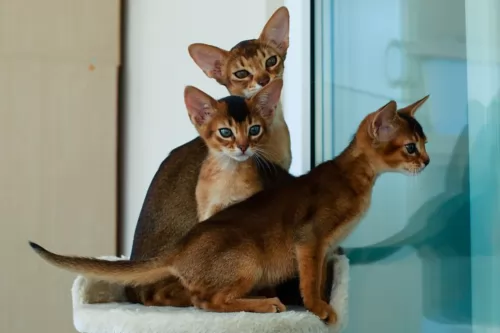 The Abyssinian has been known to be prone to kidney disorders. It can also be prone to gingivitis which can lead to periodontal disease.
The Abyssinian has been known to be prone to kidney disorders. It can also be prone to gingivitis which can lead to periodontal disease.
Also, the Abyssinian has been known to have problems with blindness. An eye problem, called progressive retinal atrophy is where the cells deteriorate over time and this is what causes the blindness.
The Abyssinian can also be prone to patellar luxation where the kneecap can become dislocated.
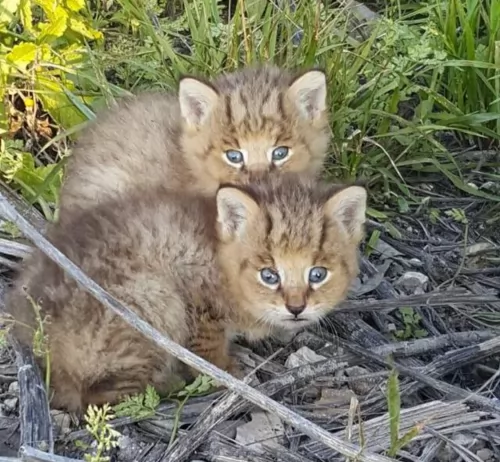 Even a trip to the vet can be a challenge and it can be a frightening experience for a hybrid cat. They may even need to be sedated before the vet can examine them.
Even a trip to the vet can be a challenge and it can be a frightening experience for a hybrid cat. They may even need to be sedated before the vet can examine them.
Also, did you know that in terms of rabies, which can be a fatal disease, it is not positive that these vaccines even work with a hybrid cat? So if your pet is exposed to rabies, it could spell great danger for you and your hybrid pet.
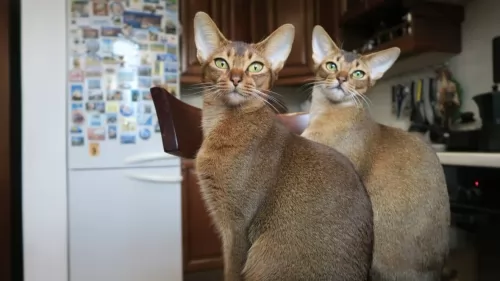 The Abyssinian cat’s short, fine coat is easy to care for. Brush and comb it timeously to remove loose hairs.
The Abyssinian cat’s short, fine coat is easy to care for. Brush and comb it timeously to remove loose hairs.
Because of periodontal disease, brush your cat's teeth. If you feel you don’t know how to perform any of these ‘caring’ routines for your kitty kat, don’t despair as your vet can do a dental cleaning procedure as well as your pet groomers.
Your Abyssinian cat is carnivorous and will need food similar to that which they would prey on in the wild. Your cat will require foods high in protein and with added vitamins and minerals.
Avoid cat foods that add in useless fillers such as wheat and soy. It is important that you buy the right cat food for your Abyssinian, and if you’re in any doubt, speak to your vet. Make sure your cat always has access to a bowl of fresh, cool water.
Always keep your Abyssinian’s litter box spotlessly clean. You can keep a special little plastic rake to rake up the sand and rid the box of cat droppings immediately.
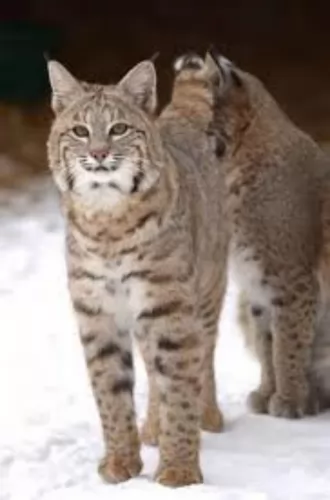 Before you invest in one of these hybrid exotic cats do research because they’re different from your regular domestic cats.
Before you invest in one of these hybrid exotic cats do research because they’re different from your regular domestic cats.
Because they have a wild side, they’re not suited to small apartments. Apart from being both an indoor and outdoor cat, he will require a fairly large outdoor cage with one part dedicated to shade and shelter for him.
Even though you will buy your Jungle Bob a litter box for indoors, remember that even though you train your cat to use it, the wild part of the cat means that he will spray and do his business on your carpets or against your furniture as well.
This is precisely why so many cat shelters are full of these cats. They become a handful for their owners, and their owners just hand them in as a bad experience.
A hybrid cat like the Jungle-Bob has a digestive system not quite the same as your regular domestic cat. It is absolutely imperative that these cats receive a meat diet as they are carnivores.
Keeping such a cat as a pet means you will need to invest in high-quality protein foods that sit well with this cat’s digestive system. A good guide for the Jungle Bob-cat is to steer clear of carbohydrates and feed your cat a protein-rich diet.
It is also a wise move to feed your new kitten the food that he has been eating at the breeder and then to make a gradual change to the best food protein there is.
Speak to your vet if in any kind of doubt. There are excellent high protein, high-quality commercial cat foods available on the market that make feeding a cat convenient as well.